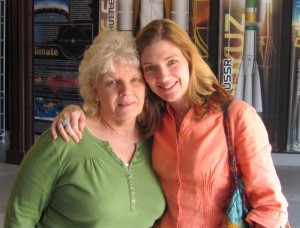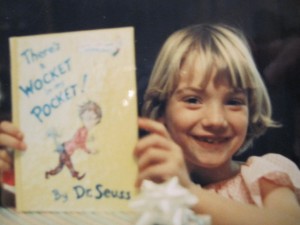Yesterday, I reviewed a great new book for young readers called Don’t Feed the Boy. Today I’m featuring an interview with the author, Irene Latham, a poet and novelist who lives and writes in Birmingham, Alabama. Her debut novel Leaving Gee’s Bend was named a Bank Street College Best Book, an SIBA finalist, a Crystal Kite Finalist and ALLA’s Children’s Book of the Year. As a child she dreamed of being a zoo veterinarian and even trained as a teenage zoo volunteer. All it took was observing one surgery to convince her that perhaps she’d better just write about the animals instead. Visit her at www.irenelatham.com. Here’s the interview:
How did you decide to become a writer?
IL: Becoming a writer never felt like a decision to me. I can’t NOT write, therefore I AM a writer. What WAS a decision was becoming a writer who pursues publication. For many years I wrote just for myself—I hadn’t yet found the courage it takes to place a piece of my writing in someone else’s hands and say, read it. But for all those words I’d written, all those sentences just for me, I realized I was failing to complete the primary purpose of writing, which is to communicate. And that requires a reader! What I’ve learned since then is that connecting with other people through a story is the very best part of being a writer.
What do you find the most challenging?
IL: Oh, there are so many challenges! Some are very practical, like learning to write in 15 minute intervals when what you’d really like is three-hour chunks. Some are more abstract, like learning to handle the emotional ups and downs of things: Good day writing: up! Rejection of new work: down. And then there’s the WAITING. No one tells you how glacial the pace of the publishing industry is. And I also get impatient with myself—why can’t I make this story work the way I want it to? The craft of writing is an endless learning process. We can only do the best we can at the place we are that very moment.
Many kids would see living in a zoo as a fun adventure, but Whit wants something different. What do you think that says about comparing our own lives to those of others?
IL: It really takes Whit’s friendship with Stella to help him appreciate his life at the zoo. And I don’t think that’s all that unusual. We as a species take much for granted. Making comparisons is part of the human experience. The good news is that it’s those comparisons that also lead us back home again.
Whit feels that his parents pay more attention to the animals than to him. Do you think that may be a common perception among children about the work their parents do? If so, what do you think parents can do to counter that?
IL: One of the reasons I wanted to write this book is because I wanted to know what that was like, that feeling of being less important. Because my parents made me feel like the most precious thing in the world. Nothing was more important than us kids. And I’ve tried to create that same environment for my children. (Some weeks are better than others!) I am constantly reminding myself that this time with them is so fleeting. Stories will be there; kids won’t.
Why do you think Whit is so willing to break the rules his parents have set so he can see more of Stella?
IL: I think there comes a point in every person’s life when they must abandon what they’ve been taught and strike out on their own. This can be as simple as a child refusing to eat peas or deciding no, dance is not for me. It isn’t easy for Whit to break the rules, but he realizes something important is at stake. He sees something in Stella—not only an opportunity to experience a friendship like he’s never experienced—but also a way to step from a life that doesn’t suit him toward all the possibilities that exist past those zoo gates. I’ve always believed that a little disobedience is required for people to become, well, people, which is why I root for Whit all the way.
Whit has never encountered anything like Stella’s family situation before. Why is he so compelled to help her?
IL: Whit’s answer to this question would be simple: that’s what friends do for one another. But his motivation probably also has to do with the way he’s lived his life so far—even though he may not recognize that fact! For instance, think about how Whit’s upbringing has fostered his scientist-like curiosity. He’s an observer. And one of the things he’s watched for years is the way his parents respond to problems with the animals. If they need enrichment, his parents do their best to provide it. If the animals need changes to their enclosures, his parents set about raising the funds to make those changes happen. All that plays a part in how he responds to Stella.
At some point Whit realizes that the issues Stella faces are beyond the ability of an 11 year old to fix. Why do you think people, not just kids, may need help from others in resolving issues?
IL: I remember being Whit’s age and encountering for the first time a friend whose life wasn’t nearly as rosy as mine. Until that point I’d assumed (as most of us do) that everyone was loved and nurtured the same way I was. It was shocking and confusing to find out I was wrong. I naively thought that if I just loved this friend hard enough, everything would be okay.
It wasn’t.
I needed someone with age and experience to help me develop empathy—and to help me understand my limitations in the face of a situation beyond my control.
Is there anything else you’d like to say to readers at Mother Daughter Book Club.com?
IL: While I have never been a member of a Mother Daughter Book Club, I do credit my mother for making sure I had plenty of books to read. Birthdays and Christmas? I got books. There were lean years when our family had to do without, but never NEVER without books. And one of the greatest joys in my life as a parent has been reading books to and with my three sons. What a special thing, to adventure together through pages and pages! Now if only I could convince my sons to read for their own pleasure … sigh. It makes me appreciate all the more readers like you!




